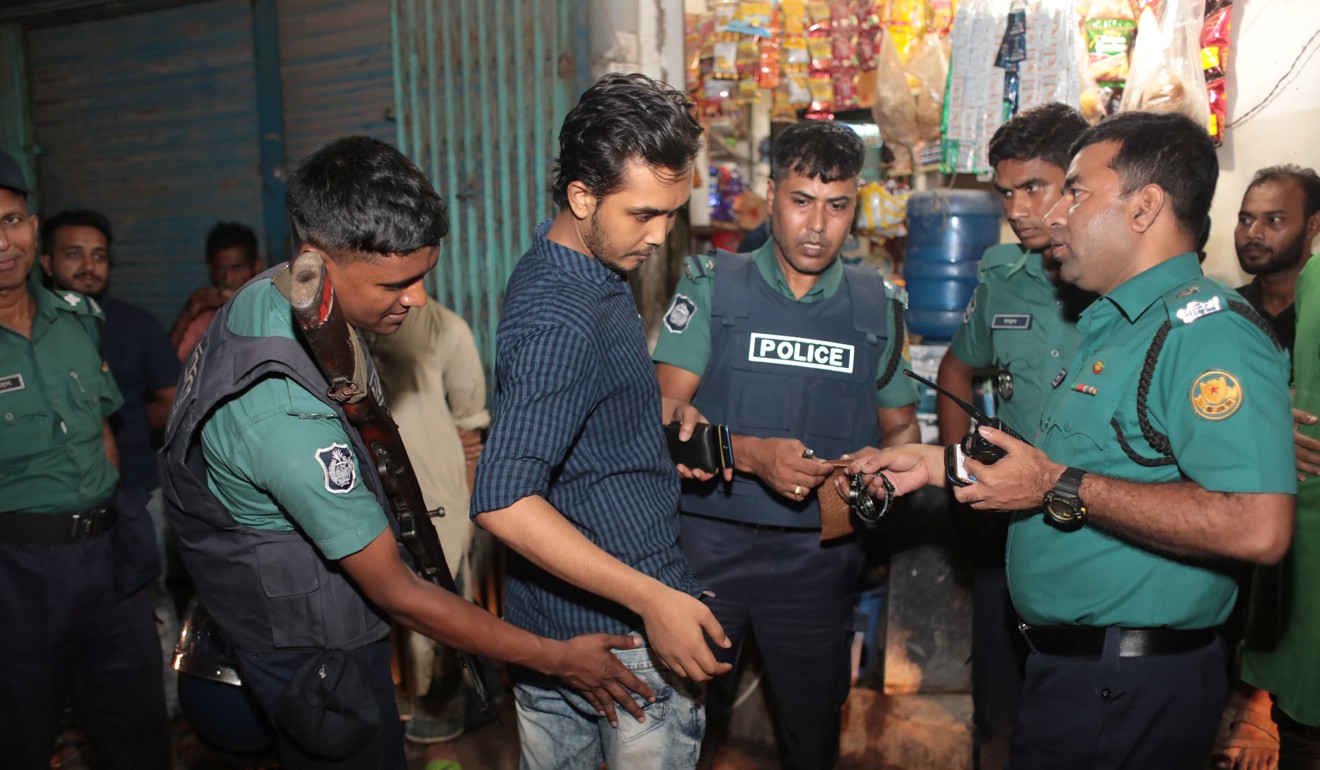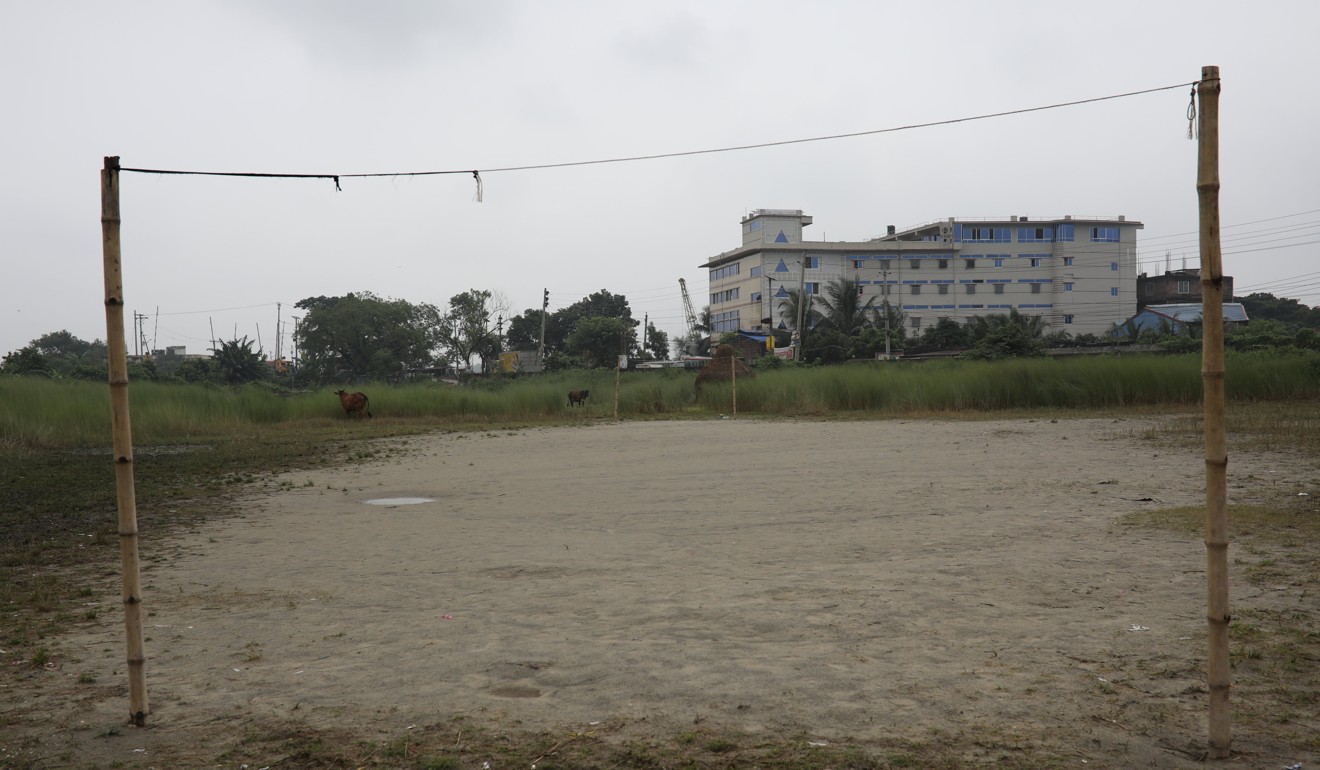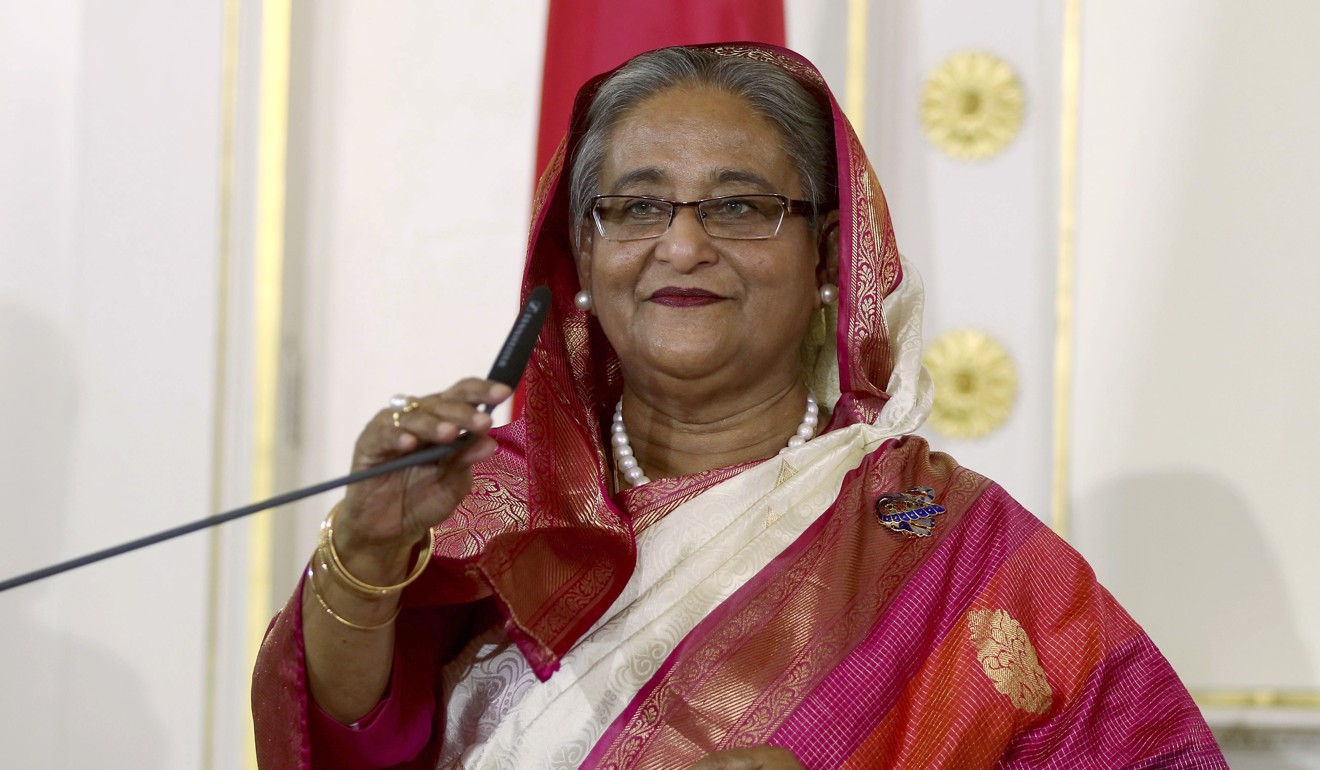
Arrested and killed: inside Bangladesh’s war on drugs
Bangladesh is a new frontline in state-backed drug crackdowns
Bangladesh police arrested Riazul Islam as he was walking home from his in-laws’ house. At 3:15am, he was shot dead in a sandy field beside a set of railroad tracks north of Dhaka.
Police say he was killed in a gunfight with other drug dealers, and they recovered 20kg of marijuana from the site. His parents say the officers extorted money from them and then killed him.
“I knew my son was in police custody. All of a sudden my son was dead. I couldn’t believe it. The police took money and they still killed him,” said his mother, Rina Begum.
Bangladesh is the newest frontline in state-backed drug crackdowns in Asia, and Islam is one of more than 200 people shot dead by police in Bangladesh since May, when Prime Minister Sheikh Hasina announced the campaign.
Hasina emphasised that the police and intelligence agencies would now tackle the drug problem in the same tough way they had countered violent extremism in recent years.
Such campaigns can be popular with voters as has been shown by President Rodrigo Duterte’s bloody drug war in the Philippines.

Hasina’s office did not respond to questions about whether the drugs campaign was a populist ploy ahead of the election or a means to frighten the opposition.
The bodies appeared rapidly after Hasina’s pronouncement. And, just like the Philippines, the killings appeared to follow a script: suspects died in “gunfights”, typically at night, and weapons and drugs were found nearby.
In more than a third of the 211 killings recorded by Dhaka-based human rights group Odhikar since mid-May, the suspects were arrested before they were killed.
The police are overseen by Home Minister Asaduzzaman Khan, who denied the police were executing suspects.
After Islam was arrested, according to the police report, officers took the “top terror” of the neighbourhood to the field beside the railroad tracks to draw in and arrest other drug dealers. The other dealers “sensed” the officers’ presence and began firing randomly, and “to save life and government property”, the officers fired back.

“Roni was shot and fell down. He died on the spot,” according to the report, which said two officers were wounded.
Islam’s autopsy report noted that a single bullet entered his head near his left ear and exited near his right. Each of the two officers were treated for small areas of tenderness and swelling on one of their hands, according to records at another hospital.
None of the six witnesses in the police report saw Islam die, they said.
Bangladesh defends drug war as chilling phone recordings fuel claims of cold-blooded killings
One of the six, handyman Mohammad Bappy, who lives at the edge of the field where Islam was shot, snapped photos of Islam’s dead body. One of the pictures shows blood on the ground beneath Islam’s head.
“There was no gun,” he said.
“If there had been a gunfight we would have heard lots of firing from two sides. That didn’t happen.”
Kamal Hossain, the officer in charge of the operation, said drug use leads to crime and arrests don’t work.

“Every drug dealer should be killed,” he said.
“Then drugs can be controlled.”
The UN High Commissioner for Human Rights, US ambassador to Bangladesh and the European Union have all expressed concern about the killings of drug suspects in Bangladesh.
Most of the killings took place in May, when there were 129 as the campaign began, but then dropped to 38 in June before picking up to 44 in July.
‘Biggest ever seizure’: Bangladesh reports meth boom during Rohingya crisis
Drug seizures data from the Department of Narcotics Control suggests the drug trade has grown, but much of the increase happened three years ago, long before Hasina launched the crackdown. The data shows a dramatic increase in methamphetamine or “yaba” pill seizures beginning in 2015.
Critics of Hasina say the crackdown is meant to show voters she is responding to popular concerns and to strike fear in political opponents ahead of the election. According to media reports, some of those killed were activists of the opposition Bangladesh National Party.
For Ashrafuzzaman Zaman, liaison officer of the Hong Kong-based Asian Human Rights Commission, the politics of the drug crackdown are clear.
“You kill 200 people and you make 150 million afraid: today or tomorrow you can also be one of them. That is the message the government is giving to the people,” he said.
Home Minister Khan denied the campaign was a cover to target opposition politicians, and said no drug offender is treated differently from another.
“His identity is only as a criminal,” he said. “Even if he has a link with the ruling party, he will not be spared.”

